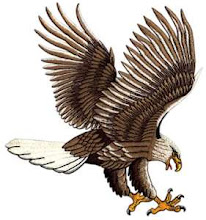Annapolis, Maryland
August 1, 1963
NOTE: The President spoke in the early evening at Bancroft Hall at a ceremony honoring the new class of midshipmen. His opening word "Admiral" referred to Adm. Charles E. Kirkpatrick, Superintendent of the Naval Academy. The President made minor departures in delivering these remarks. This text is from The Public Papers of the Presidents: John F. Kennedy, 1963.
Admiral, officers, members of the Brigade: I hope you will stand at ease. Perhaps the plebes will. Did you explain that to them? That comes later in the course.
I want to express our very strong appreciation to all those of you in the plebe class who have come into the Navy. I hope that you realize how great is the dependence of our country upon the men who serve in our Armed Forces. I sometimes think that the people of this country do not appreciate how secure we are because of the devotion of the men and their wives and children who serve this country in far off places, in the sea, in the air, and on the ground, thousands and thousands of miles away from this country, who make it possible for us all to live in peace each day.
This country owes the greatest debt to our servicemen. In time of war, of course, there is a tremendous enthusiasm and outburst of popular feeling about those who fight and lead our wars, but it is sometimes different in peace. But I can assure the people of this country, from my own personal experience in the last 2 1/2 years, that more than anything, more than anything, the fact that this country is secure and at peace, the fact that dozens of countries allied with us are free and at peace, has been due to the military strength of the United States. And that strength has been directly due to the men who serve in our Armed Forces. So even though it may be at peace, in fact most especially because it is at peace, I take this opportunity to express our appreciation to all of them whether they are here at Annapolis, or whether they are out of sight of land, or underneath the sea.
I want to express our strong hope that all of you who have come to the Academy as plebes will stay with the Navy. I can think of no more rewarding a career. You will have a chance in the next 10, 20, and 30 years to serve the cause of freedom and your country all over the globe, to hold positions of the highest responsibility, to recognize that upon your good judgment in many cases may well rest not only the well-being of the men with whom you serve, but also in a very real sense the security of your country.
I can imagine a no more rewarding career. And any man who may be asked in this century what he did to make his life worth while, I think can respond with a good deal of pride and satisfaction: "I served in the United States Navy." So I congratulate you all. This is a hard job, particularly now as you make the change, but I think it develops in you those qualities which we like to see in our country, which we take pride in. I am sure you are going to stay with it. I am sure you are going to be able, by what you are now going through, to find the means to command others.
So I express our very best wishes to you and tell you that though you will be serving in the Navy in the days when most of those who hold public office have long gone from it, I can assure you in 1963 that your services are needed, that your opportunities are unlimited, and that if I were a young man in 1963 I can imagine no place to be better than right here at this Academy, or at West Point, or in the Air Force, or in some other place beginning a career of service to the United States.
There is an old story-which I will close with which will give you very valuable advice as you follow a naval career-about a young yeoman who watched a lieutenant begin a meteoric career in the Navy, and he always used to go into his office every morning and go to his drawer and take out a piece of paper and look at it. He became the youngest captain, the youngest admiral, the youngest commander-in-chief. Finally one day he had a heart attack. The yeoman said, "I want to see what is in that paper. It might help me." So he went over and opened up the safe and pulled out the paper. And it said, "Left-port; right-starboard."
If you can remember that, your careers are assured!
Thank you



No comments:
Post a Comment